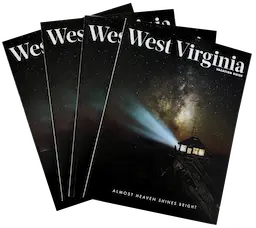Reacting to the Raid: Local Militia and the US Marines
John Brown attacked Harpers Ferry on October 16, 1859 and was captured two days later by the US Marines. Volunteers of the USMC Historical Company relive the scene and the all-important reactions to the raid.
“The Mine Wars”
In the beginning of the 20th Century, coal fueled industrial progress. Coal mining was an industry in which nearly 750,000 men across the U.S. spent 10 to 12 hours a day blasting, shoveling, and loading the fuel that made the nation’s industrial progress possible. This film brings to life the decades-long struggle for the miner’s right to organize and join a union, and shows how the coalfields of southern West Virginia became a war zone.
Pricketts Fort Lecture Series: John Boback, The Western Virginia Backcountry: A Short History of a Very Long Frontier
Jacob Prickett has long been celebrated as being one of the earliest pioneers on the western Virginia frontier. However, John Boback will argue the opposite position by presenting the Pricketts as late comers to the frontier period of history that had actually started over one hundred years before Prickett was even born.
School of the Longhunter
An intense weekend of instruction, exploring the role of early frontiersmen on the American frontier. Speakers will focus on the frontier skills of the Longhunter.
WV Archaeology Month Program: Plantation Archaeology, Industrial Slavery and the Glenwood Project
Robert Maslowski , Retired Archeologist, U.S. Army Corps of Engineers, Huntington District Slave-based agriculture and the salt industry were two of the most important economic pursuits in the early history of West Virginia. The treatment of the enslaved workers differed greatly because slaves in the salt trade were leased instead of owned directly. These differences are revealed in excavations at the Jenkins Plantation on the Ohio River, the Reynolds home and slave cabin at the Marmet Lock Replacement project, and the Glenwood Estate in Charleston, WV.
Plantation Archaeology, Industrial Slavery and the Glenwood Project
Robert Maslowski , Retired Archeologist, U.S. Army Corps of Engineers, Huntington District Slave-based agriculture and the salt industry were two of the most important economic pursuits in the early history of West Virginia. The treatment of the enslaved workers differed greatly because slaves in the salt trade were leased instead of owned directly. These differences are revealed in excavations at the Jenkins Plantation on the Ohio River, the Reynolds home and slave cabin at the Marmet Lock Replacement project, and the Glenwood Estate in Charleston, WV.








